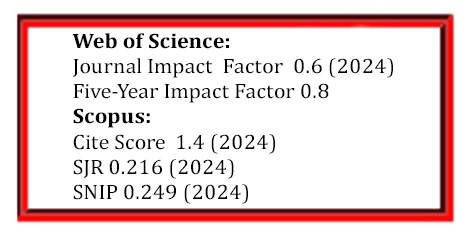Investigation of Factors Affecting Friction Stir Welding of Polyethylene by ANOVA Analysis
DOI:
https://doi.org/10.5755/j02.ms.27591Keywords:
friction stir welding (FSW), shoulder-pin diameter, tensile strength, ANOVA analysis, optimization, welding of polymerAbstract
The variables that are effective in joining high density polyethylene sheets by friction stir welding (FSW) have been investigated. In order to understand the effects of welding parameters, using Taguchi optimization, tool rotation speed, feed rate, shoulder diameter and pin diameter values were selected in a wide range. The results obtained with Taguchi optimization method were evaluated according to the highest / the best signal-noise ratio. Macro photographs taken cross-sectional view taken the weld seam, SEM images and hardness measurements were used to evaluate. As a result of the evaluation, the accuracy of the optimization was found to be approximately 96 %. As a result, feed rate and shoulder diameter were determined as the most effective parameter affecting the welding quality and welding performance. These two parameters (shoulder diameter and feed rate) have found to effect of approximately 65 % on tensile strength, weld quality and hardness. Finally, it has obtained that the most effective welding parameter was the shoulder diameter with 40.81 %.
Downloads
Published
Issue
Section
License
The copyrights for articles in this journal are retained by the author(s), with first publication rights granted to the journal. By virtue of their appearance in this open-access journal, articles are free to use with proper attribution in educational and other non-commercial settings.



